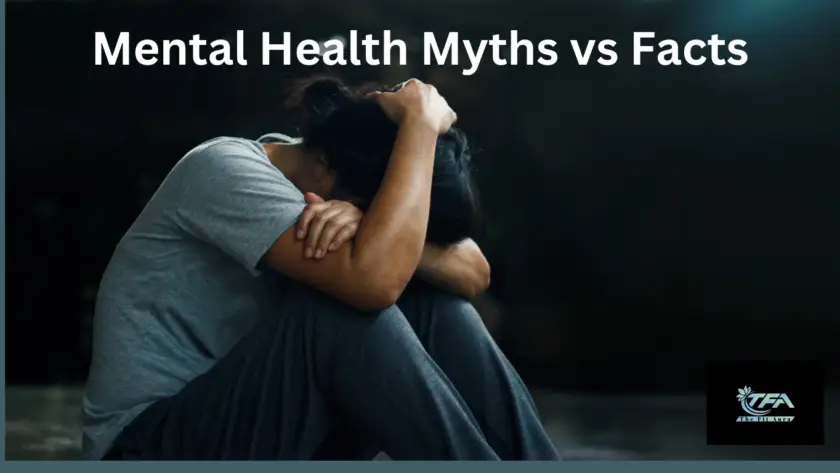Mental Health Myths vs Facts
Mental health is an important aspect of our health, but it is also one of the most overlooked areas. Even with more focus on mental health awareness, several myths continue to exist. This blog sets out to address some of the most common misconceptions while introducing some facts in a more compassionate approach.
WHO defines mental health as problems related to cognition, emotions, psychosis, or social issues. It covers how we feel and act, as well as how well we cope with stress and interact with others. Contrary to what stereotypes may suggest, mental health can affect anyone irrespective of age, sex, or wealth distribution.
Mental Health Myths Vs Facts

Myth 1: Mental health problems are rare.
Mental Health Myths vs Facts
Fact: Mental health issues are more common than many people think. According to the World Health Organization (WHO), one in four people globally will experience a mental health condition in their lifetime. Conditions such as anxiety, depression, and stress-related disorders affect millions worldwide.
Myth 2: People with mental health issues are weak.
Mental Health Myths vs Facts
Fact: Mental health struggles have nothing to do with personal weakness or lack of willpower. They are medical conditions that can arise from a combination of genetic, biological, environmental, and psychological factors. Seeking help is a sign of strength, not weakness.
Myth 3: Children do not suffer from mental health issues.
Mental Health Myths vs Facts
Facts: The increasing number of referrals for mental health services has in part been attributed to a greater recognition of issues such as anxiety, depression, and behavioral disorders among children. Even children who do suffer from these emotional problems must be able to receive intervention as early as possible.
Myth 4: Mental health problems can be willed away.
Mental Health Myths vs Facts
Facts: A mental health issue arises because of one’s state of mind or in combination with the overall social and environmental context. Encouraging a person with depression to “snap out of it” is demeaning and belittles the severity of their situation. Recovery is often a long process that may involve professional medical assistance, coping, and unconditional support.
Myth 5: People with mental issues will never be able to get rid of them.
Mental Health Myths vs Facts
Fact: Numerous mental health illnesses are curable and patients can learn how to control their symptoms. Thanks to therapy, medication, and certain lifestyle choices, we can all lead meaningful lives.
Myth 6: Mental illness is permanent.
Fact: Many mental health conditions are treatable, and people can recover or learn to manage their symptoms effectively. With therapy, medication, and lifestyle changes, individuals can lead fulfilling lives.
Myth 7: Discussing any mental health issues will make it worse.
Mental Health Myths vs Facts
Fact: Discussing issues related to mental health and well-being enhances comprehension, helps erase prejudice, and convinces desiring patients to receive assistance. In contrast, refusal to allow a discussion paves the way for lies and prevents people from helping each other.
Myth 8: Mental health conditions are always physically visible.
Mental Health Myths vs Facts
Fact: Many people have mental illnesses but appear quite normal on the outside. Just because somebody looks fine, it doesn’t mean that he/she is not suffering from any mental illness.
BREAKING THE STIGMA :

Mental Health Myths vs Facts
The mental health stigma often hinders people from getting the appropriate treatment. Understanding and raising awareness is vital to debunking such myths and fostering an environment where people appreciate that mental health is as important as physical health.
HOW TO SUPPORT MENTAL HEALTH
Educate Yourself: Read and learn about mental health issues so you can dispel myths as well as have compassion towards them.
Encourage Open Conversations: Foster an open environment where everyone can share their sentiment with ease.
Seek Professional Help: This applies to your mental health or a person that you care about get a consultation from a mental health specialist.
Engage In Self-Care: Include in your daily routine such practices as physical fitness, meditation, and sufficient hours of quality sleep.
Conclusion
It is indeed important to know how mental health works for the creation of a better world. In clarifying false beliefs and emphasizing evidence-based reality, we will remove the obstacles that stop people from going to treatment. We all should work to make mental health awareness an ordinary theme so we design a world where people do not feel neglected or alone.




